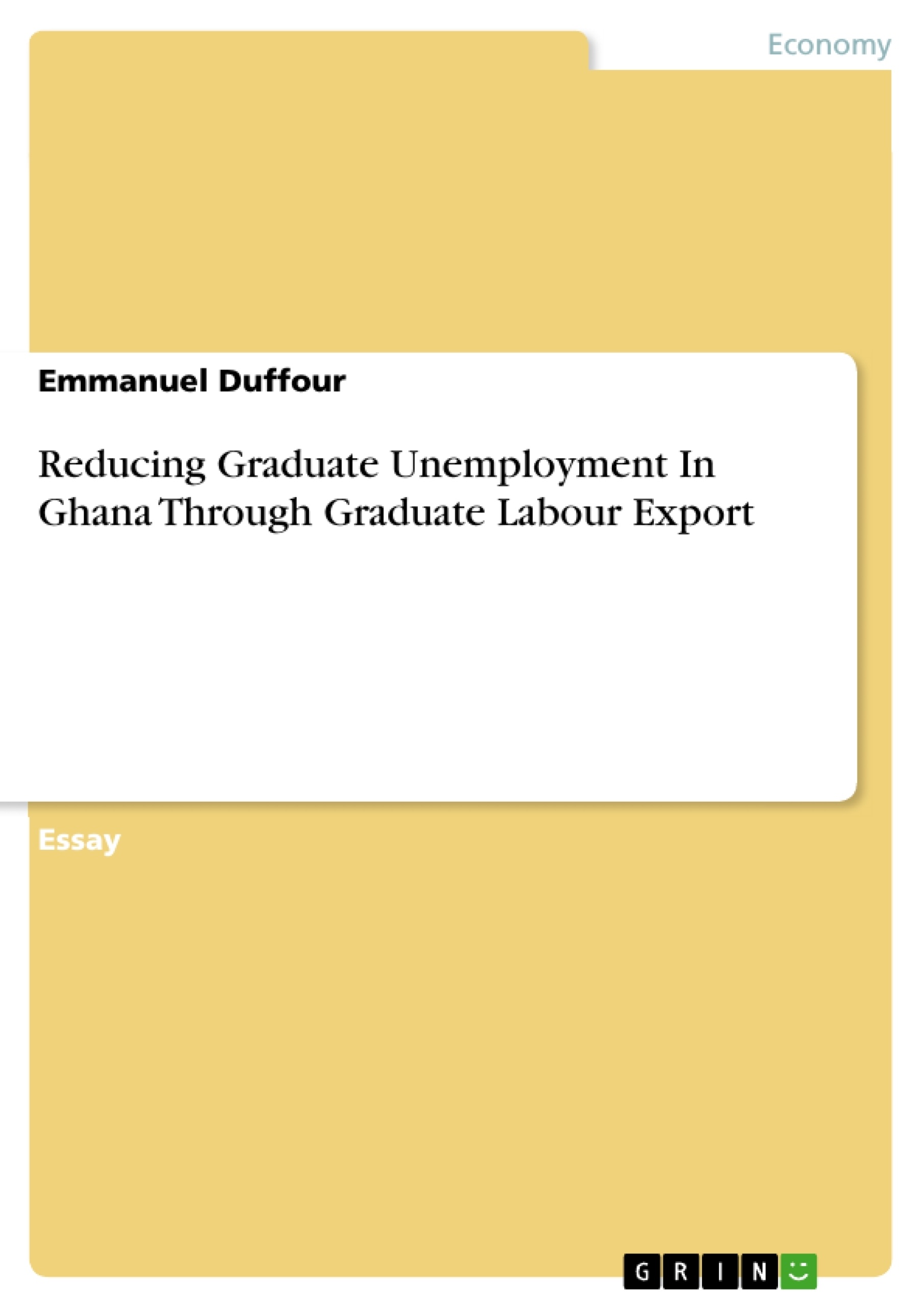For some time now, unemployment has become a worldwide open sore. The occurrence is definitely not unfamiliar to Ghana, as the country is not experiencing graduate unemployment is for the first time in history. In the 1980s, when money based development was said to have been positive, graduate unemployment was soaring.
Studies have been done, but not a lot of cases trying to find out the causes and available fixes for diseases for graduate unemployment in the country. Some people who lawfully live in a country, state, etc. gave their ideas as one after the other government has not done enough while others blame the universities for unrelated school courses. Up until now, others have blamed the graduates for not preparing themselves well before graduating. The discussion has mostly been a blame game. The study done by Boateng and Ofori (2002) tells about that universities and the other related to three institutions bring into being about 68,000 graduates yearly without corresponding high numbers of jobs being created to soak them up like a towel.
As a successful way of reaching goals towards the national money based development plan, across the ocean graduate exporting could be seen as real and true option for the country’s youth work force and listed are four success ways of reaching goals for showing in a good way the exportation of graduates in the Ghana.
Frequently Asked Questions
What is the main topic discussed in this document?
This document primarily discusses graduate unemployment, particularly in the context of Ghana, and explores the idea of graduate labor exportation as a potential solution.
What are some of the causes of graduate unemployment mentioned?
The document mentions several potential causes, including discrimination by educated youth towards certain job opportunities, universities offering unrelated school courses, graduates not adequately preparing themselves, and a mismatch between the number of graduates produced and the number of jobs created.
What are the recommended guidelines for graduate labor exportation?
The document suggests several guidelines, including making government goals clear and reliable, using controlled channels for labor exportation, securing access to foreign labor markets through bilateral agreements, and prioritizing the search for limited-term employment opportunities in countries with labor deficits.
What role should the government play in graduate labor exportation?
The government should play a supportive and legal role throughout the process, including securing access to foreign labor markets, preventing its people from using uncontrolled channels to move, recruiting graduates, and ensuring the safety of traveling workers.
How can the safety of graduate traveling workers be ensured?
The government should be responsible for recruiting graduate workers for interested countries or organizations, proves true the terms of workers` contract with the foreign employer, help on ones behalf, and hold whole countries responsible for the protection of its graduate workers.
What kind of support should be provided to traveling workers?
Support should include encouraging workers to use official channels for sending money home, partially paid for benefits such pre moving from one place to another, training on social and work conditions in other countries, life insurance and money paid regularly after retirement plans, medical insurance and tuition help. Additionally, the individual is encouraged to open an account with a defined bank in Ghana and accumulated salaries in their personal bank accounts cannot be access whiles working in abroad unless the graduate worker returns to his or her home country.
How can the government encourage continued ties with the homeland?
The government can sponsor tours of entertainers, support exporters of local foods, and offer mental counseling services that emphasize Ghanaian values. They should also allow across the ocean graduate workers exported to vote in national elections during their period of contract whiles in other countries and should support of the return of travelling workers part of its policy.
What incentives should be offered to returning traveling workers?
Incentives should include duty-free shops, tax-free shopping for one year, loans or business capital at special rates, and ability to participate for partially paid for money given to good students to help pay for college.
What sources are cited in this document?
The document cites several sources, including:
- Boateng, K. & Ofori-Sarpong, E. (2002).
- International Labour Organization (2013).
- Kelvin Balogun (March 23, 2016).
- United Nations Economic Commission for Africa. (2010).
- Quote paper
- Emmanuel Duffour (Author), 2016, Reducing Graduate Unemployment In Ghana Through Graduate Labour Export, Munich, GRIN Verlag, https://www.grin.com/document/336314



